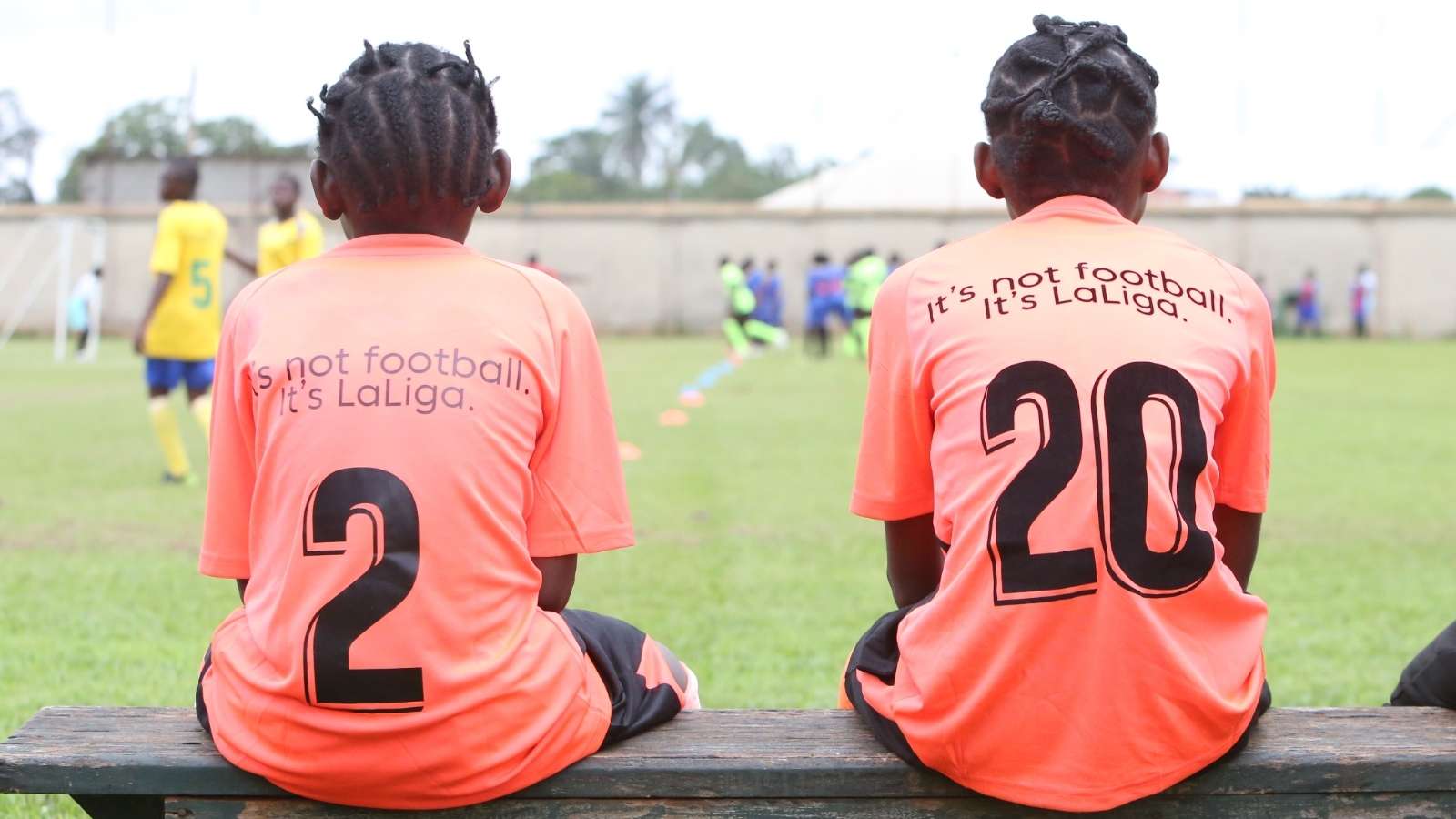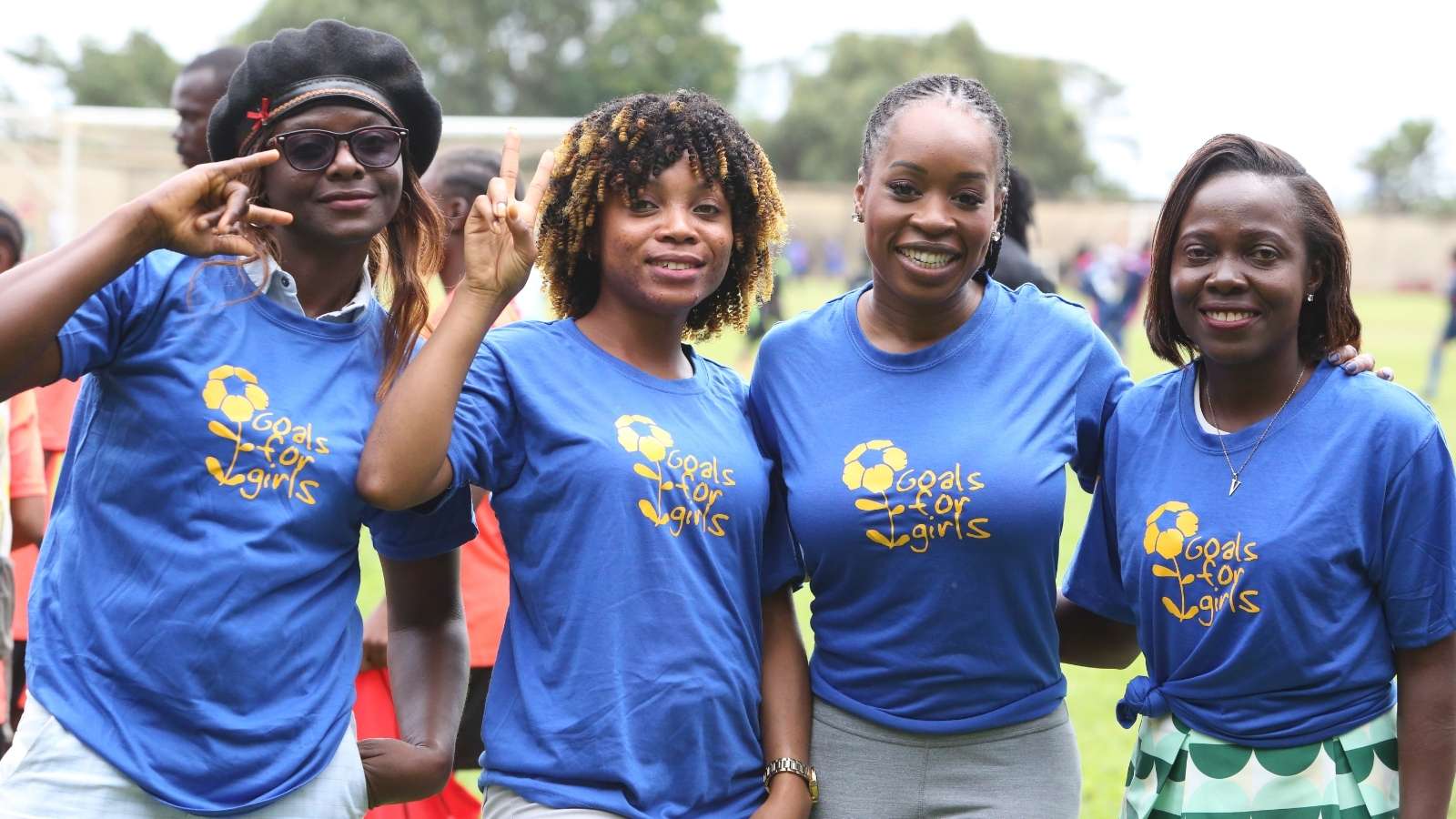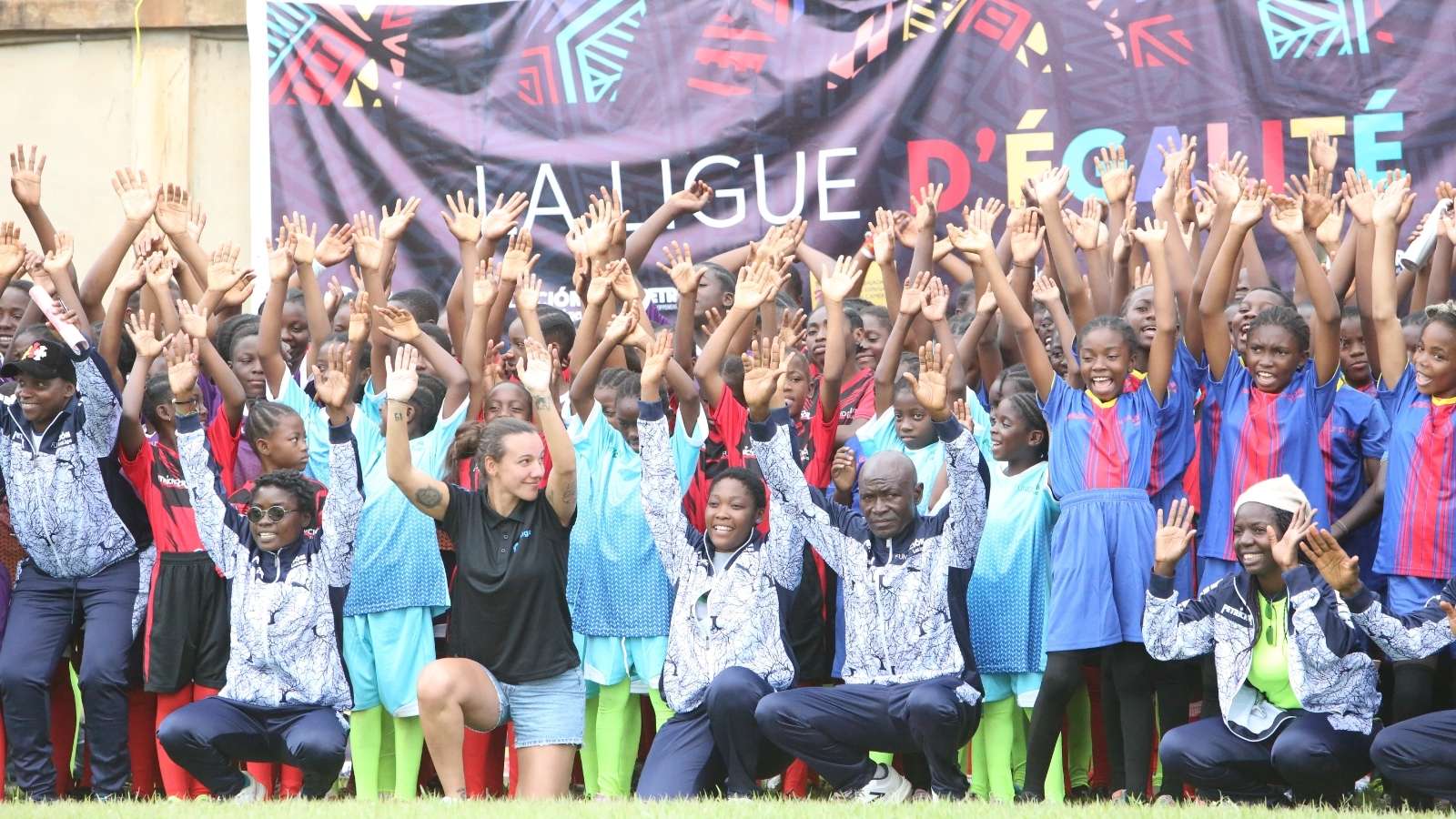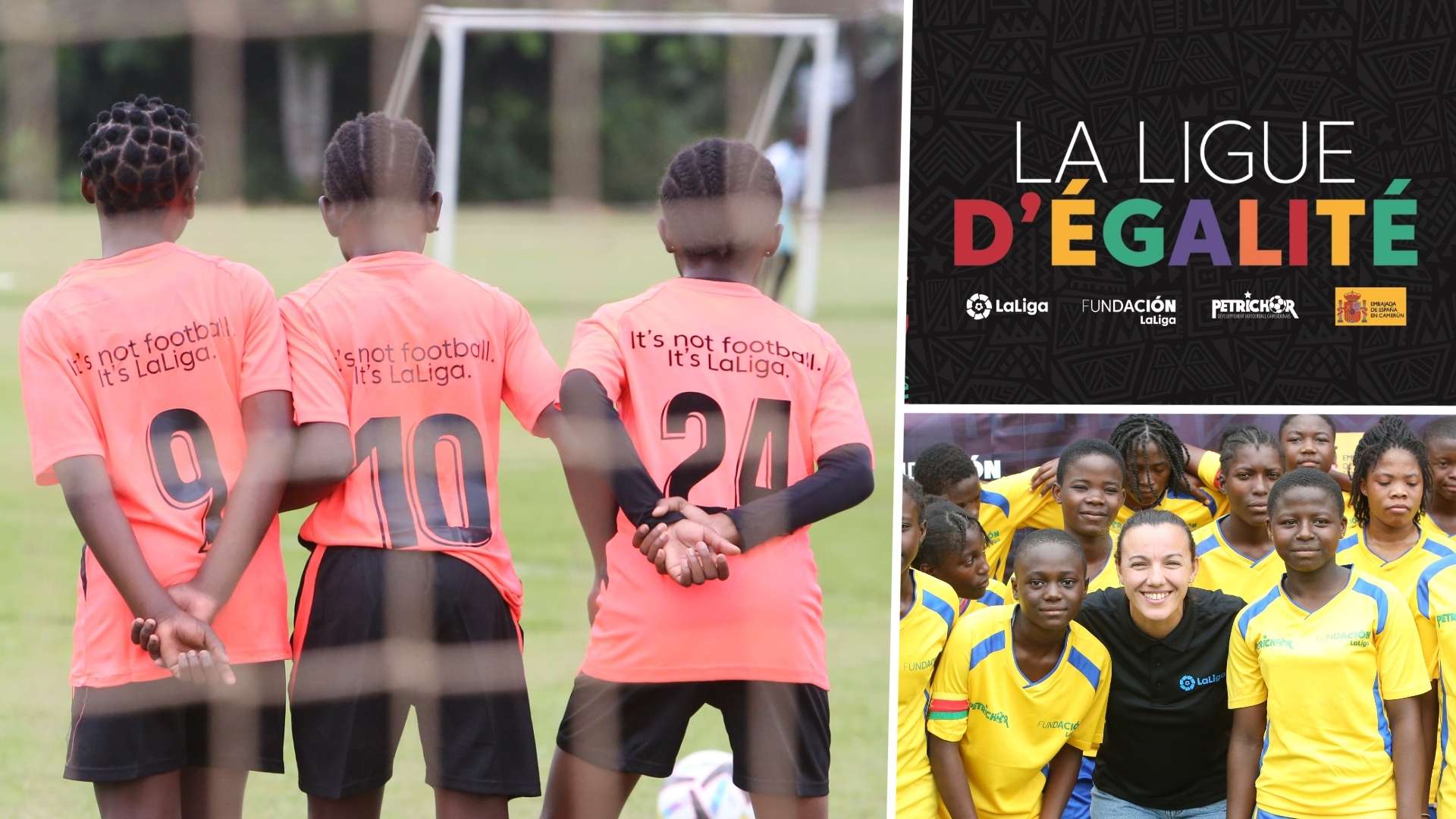“Unique”, something “that has never happened before”. And it’s all taking place in Yaounde, Cameroon.
Five years ago, a project began to develop a structure that could get more kids into football in one of Africa’s most successful nations. Today, it is a fully operational league – La Ligue D'Egalite, 'the equality league' – and is endorsed by La Liga, one of football’s biggest brands.
When GOAL asks Tresor Penku, the Spanish league's delegate in Cameroon and Central Africa, what it was about the idea that so appealed to him, he doesn’t have to think twice to answer. “Building a platform that didn't exist in the country,” he replies.
“In many African countries, you have a lot of tournaments around the place, but for boys. You have leagues around the communities, but for boys. You have parents who will say, 'Oh, my daughter loves football, but can't play because it's with the boys.'
“So, I was like, 'Oh, this is actually interesting, because we have many young girls who really want to play football. But where do they play football? Why do they play? How do they play?’
“Now, even if we have been able to impact close to 600, many still want to play and we are discovering that.
"The growth has also been due to the fact that there are many young girls out there who need a platform to play football and we are just giving them the opportunity.”
Cameroon is a football mad nation and one of Africa’s very best.
Five-time champions on the continent on the men’s side, their run to the quarter-finals of the 1990 World Cup and Roger Milla’s dancing is a fondly recalled memory for many outside of the country, never mind within, while Samuel Eto'o is arguably the continent's greatest ever footballer.
 Petrichor/La Ligue D'Egalite
Petrichor/La Ligue D'EgaliteThe women’s team is growing in stature, too, reaching the final of the Africa Cup of Nations in 2014 and 2016, and the knockout stages of the last two World Cup tournaments.
A look through their squad and you’ll see top clubs represented, with Ajara Nchout at Inter while Michaela Abam and Estelle Johnson play in one of the world's best leagues, in the United States.
But look at the opportunities available to the children in Cameroon wanting to be the next Eto’o or Nchout and you'll see that the are limited – particularly for girls.
It was just under a decade ago, then, that the Cameroonian Football Federation reached out to Jordan Cone, who was working at an international school and coaching a women’s team in Yaounde – the country’s capital. They wanted his help to develop a structure to get more kids into the game.
The idea that initiative spawned is called Petrichor, an association model that offers support to local clubs in a variety of ways – from equipment and a league structure, to coaching education and pitch improvements.
“What happens [in Cameroon] is there's a handful of tournaments per year that random people put on. A club might say, 'Hey, we're going to run a tournament in this community in a few months,'" Paul Dreisbach, the project’s co-founder, tells GOAL.
“Word gets out, academies get all the players they can and they'll practise for a few months, go play in the tournament and then, once it's over, nothing happens for another six months or a year, until there's another tournament.
“If there are a few good players in that tournament, some of these clubs might see them and say, 'Hey, can you come for a trial?' But that's the extent of youth pathways and development right now in Cameroon.
“There are a few select academies that work with exclusive numbers, where they'll host try-outs and only work with 20 kids, but there hasn't been anything like this kind of decentralised and community-based organic entry into the game, because we tried to just get kids playing.
“As far as the girls' league, that's never happened before. It just doesn't exist.”
When Cone – who grew up in West Africa but went to university with Dreisbach in the United States – was contacted by the federation, he picked up the phone to ring his friend across the Atlantic.
“Hey, do you want to help me start something?” he asked. “I'm not exactly sure how to work it.”
What followed was a lot of groundwork, building relationships in Cameroon, which has been imperative to the success of La Ligue D'Egalite's launch.
“I think because we're flipping the script a bit and being very inclusive of the wider community, working with people and investing into local leaders that were already doing this work, that's where it's a bit unique and gaining some attention because, as far as I know, I haven't seen something like this before,” Dreisbach says.
At first, it was just about football. But then Dreisbach connected with Lola Ogunbote, who works for Goals for Girls, an American non-governmental organisation with a mission statement of “uniting girls through football to lead community change”.
"I was like, 'Well, if you're doing the football side, what's the support? How are they being mentored? What's the messaging that's going on there?'" Ogunbote tells GOAL of her first interaction with Dreisbach.
 Petrichor
Petrichor“He was like, 'Oh, it's kind of just football at this time.' I said, 'Well, that's great but we could also come in and help in terms of getting the messaging across about who they are, their values, what they want from life, how they can make change in their communities.
"'We can provide that leadership, that female empowerment around sport element on top of what you're offering.'”
It was a perfect fit. Ogunbote and her team spoke to female coaches in the area to understand what messaging was needed for girls in Yaounde, came up with a curriculum and added it to the project.
It's not the only addition to this programme that deals with more than just playing football.
Dreisbach is able to point to a number of ideas and projects in the works that aim to explore different avenues in sport, such as journalism or data analysis, and give young people the chance to open more doors in their future.
There is also a lot of work going on behind the scenes to make these clubs in Cameroon self-sufficient, so Petrichor's work is no longer needed.
Things were tough to start with, Dreisbach admits.
"We're talking with families and communities about releasing their girls to come play and focusing just on them, and it's been difficult,” he explains. But, now, all of this is having quite an impact in the country.
“There are many parents who are resistant to the fact that their girls play football,” Penku says. “Others will see what is happening and maybe become more flexible at that point. If their young girl wants to play football, they'll say, 'Go for it!'
“They're coming more and more. It's actually becoming an event for communities. Every weekend, when there's a nice day, not only players come – they want to come with their friends, with their families.”
 Petrichor/La Ligue D'Egalite
Petrichor/La Ligue D'Egalite“Three hundred to four hundred girls, literally every week now, can go and play in a league,” Ogunbote, whose Goals for Girls project isn’t partnered with La Liga but simply working with Petrichor, says.
“That's phenomenal. I look at that and I think, 'Well, if that's the only contribution I can make in this life, I'm very happy with that.'
"I'm happy to be a part of such a movement in a country that doesn't normally champion girls participating in sport.”
What's next, then? Penku explains that the aim is not to produce professional players like an academy, but it would be a bonus on top of everything else that is going on.
The girls can see that is possible, too, with Cameroon international Catherine Mbengono a regular visitor to those benefiting from Petrichor’s work.
"That's definitely a great connection for them to see as a role model like, 'Whoa, you came from the same community I live in right now – and look at you,'" Dreisbach explains.
"That's definitely a big help for us and, along with that exposure, we want to help provide more role models like that.”
Another is Estelle Johnson, who plays for Cameroon and Gotham in the NWSL. She was “immediately drawn” to what Petrichor is doing and has sent messages to the girls along the way.
“These opportunities are very important not only for the future of our national team but also because participation in football and sports is important to build character, confidence, teamwork and many other life skills,” she tells GOAL.
“Football taught me about life and I love seeing the girls have the opportunity to get a taste of that.
“My message to the young, amazing footballers of Cameroon is to follow your heart, dream big, and be consistent with your work.
"If football is something that you want to do, every time you show up to play, be ready. Play hard, enjoy it and never let anyone tell you that your dreams are impossible."
The goal might not be to produce the next Mbengono or Johnson, but who knows? With accessibility and visibility like this, girls in Cameroon have opportunities that simply weren’t there before.
Maybe the next rising star from this great footballing nation will start their story in La Ligue D'Egalite.
